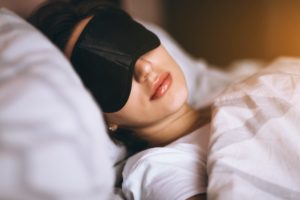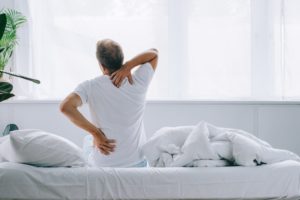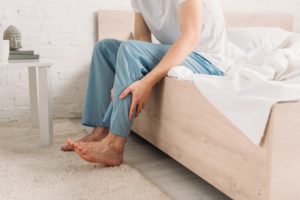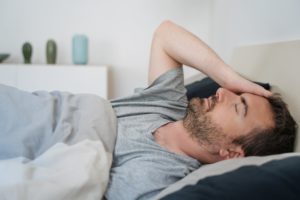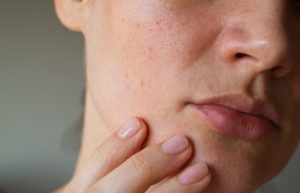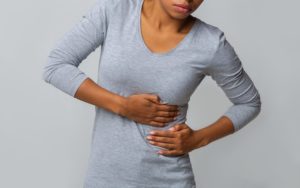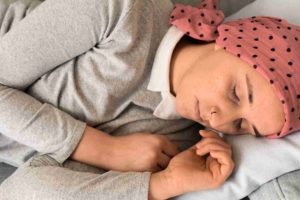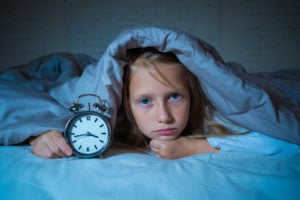Sleep and Weight Loss
- Sleep is essential to regulating the hormones that affect hunger and appetite.
- Poor sleep can lower your metabolism, making it harder to burn calories.
- Establishing healthy sleep habits can support your weight loss efforts.
- Regular physical activity and avoiding heavy meals before bed can improve sleep quality and weight management.
Losing weight is challenging, and keeping weight off can be just as difficult. Although the medical community is still untangling the complicated relationship between sleep and body weight, several potential links have emerged that highlight the potential weight loss benefits of getting a good night’s rest and the negative health impacts of sleep deprivation.
Why Is Sleep Important to Weight Loss?
Over the past several decades, the amount of time that Americans spend sleeping has steadily decreased, as has the self-reported quality of that sleep. For much of the same time period, the average body mass index (BMI) of Americans increased, reflecting a trend toward higher body weights and elevated rates of obesity.
In response to these trends, many researchers began to hypothesize about potential connections between weight and sleep. Numerous studies have suggested that restricted sleep and poor sleep quality may lead to metabolic disorders, weight gain, and an increased risk of obesity and other chronic health conditions.
While there is continuing debate within the medical community about the exact nature of this relationship, the existing research points to a positive correlation between good sleep and healthy body weight.
There remains much to be discovered about the intricate details of how sleep and weight are connected. Several hypotheses offer paths for additional research with the hope that increasing our understanding of the relationship between weight and sleep will lead to reduced obesity and better weight-loss methods.
Can Lack of Sleep Increase Appetite?
One common hypothesis about the connection between weight and sleep involves how sleep affects appetite. While we often think of appetite as simply a matter of stomach grumbling, it’s actually controlled by neurotransmitters, which are chemical messengers that allow neurons (nerve cells) to communicate with one another.
The neurotransmitters ghrelin and leptin are thought to be central to appetite. Ghrelin promotes hunger, and leptin contributes to feeling full. The body naturally increases and decreases the levels of these neurotransmitters throughout the day, signaling the need to consume calories.
A lack of sleep may affect the body’s regulation of these neurotransmitters. In one study, men who got 4 hours of sleep had increased ghrelin and decreased leptin compared to those who got 10 hours of sleep. This dysregulation of ghrelin and leptin may lead to increased appetite and diminished feelings of fullness in people who are sleep deprived.
In addition, several studies have also indicated that sleep deprivation affects food preferences. Sleep-deprived individuals tend to choose foods that are high in calories and carbohydrates .
Does Sleep Increase Metabolism?
Metabolism is a chemical process in which the body converts what we eat and drink into energy needed to survive. All of our collective activities, from breathing to exercising and everything in between, is part of metabolism. While activities like exercise can temporarily increase metabolism, sleep cannot. Metabolism actually slows about 15% during sleep, reaching its lowest level in the morning .
In fact, many studies have shown that sleep deprivation (whether due to self-induction, insomnia, untreated sleep apnea, or other sleep disorders) commonly leads to metabolic dysregulation. Poor sleep is associated with increased oxidative stress, glucose (blood sugar) intolerance (a precursor to diabetes), and insulin resistance. Extra time spent awake may increase the opportunities to eat, and sleeping less may disrupt circadian rhythms, leading to weight gain .
How is Sleep Related to Physical Activity?
While researchers are still working to understand this connection, it’s well known that exercise is essential to maintaining weight loss and overall health. Losing sleep can result in having less energy for exercise and physical activity. Feeling tired can also make sports and exercising less safe, especially activities like weightlifting and or those requiring balance.
Getting regular exercise can improve sleep quality, especially if that exercise involves natural light. While even taking a short walk during the day may help improve sleep, more activity can have a more dramatic impact. Engaging in at least 150 minutes of moderate-intensity or 75 minutes of high-intensity exercise per week can improve daytime concentration and decrease daytime sleepiness .
The Connection Between Sleep and Obesity
In children and adolescents, the link between not getting enough sleep and an increased risk of obesity is well-established, although the reason for this link is still being debated. Insufficient sleep in children can lead to metabolic irregularities as discussed earlier, skipping breakfast in the mornings, and increased intake of sweet, salty, fatty, and starchy foods.
In adults, the research is less clear. While a large analysis of past studies suggests that people getting less than 6 hours of sleep at night are more likely to be diagnosed as obese , it’s challenging for these studies to determine cause and effect. Obesity itself can increase the risk of developing conditions that interfere with sleep, like sleep apnea and depression. It’s not clear if getting less sleep is the cause of obesity in these studies, if obesity is causing the participants to get less sleep, or perhaps a mix of both. Even though more studies are needed to understand this connection, experts encourage improving sleep quality when treating obesity in adults.
Tips for Quality Sleep During Weight Loss
Getting adequate, quality sleep is an important part of a healthy weight loss plan. Most importantly, research has shown that losing sleep while dieting can reduce the amount of weight lost and encourage overeating .
There are many ways to improve sleep. Here are a few research-based tips for sleeping better when you’re trying to lose weight:
- Keep a regular sleep schedule: Big swings in your sleep schedule or trying to catch up on sleep after a week of late nights can cause changes in metabolism and reduce insulin sensitivity , making it easier for blood sugar to be elevated.
- Sleep in a dark room: Exposure to artificial light while sleeping, such as a TV or bedside lamp, is associated with an increased risk of weight gain and obesity.
- Don’t eat right before bed: Eating late may reduce the success of weight loss attempts
- Reduce Stress: Chronic stress may lead to poor sleep and weight gain in several ways, including eating to cope with negative emotions
- Be an Early Bird: People with late bedtimes may consume more calories and be at a higher risk for weight gain . Early birds may be more likely to maintain weight loss when compared to night owls .
References
11 Sources
-
Greer, S. M., Goldstein, A. N., & Walker, M. P. (2013). The impact of sleep deprivation on food desire in the human brain. Nature communications, 4, 2259.
https://pubmed.ncbi.nlm.nih.gov/23922121/ -
Sharma, S., & Kavuru, M. (2010). Sleep and metabolism: an overview. International journal of endocrinology, 2010, 270832.
https://pubmed.ncbi.nlm.nih.gov/20811596/ -
Westerterp-Plantenga M. S. (2016). Sleep, circadian rhythm and body weight: parallel developments. The Proceedings of the Nutrition Society, 75(4), 431–439.
https://www.cambridge.org/core/product/identifier/S0029665116000227/type/journal_article -
Loprinzi, P. D., Cardinal, B. J. (2011). Association between objectively-measured physical activity and sleep, NHANES 2005–2006. Mental Health and Physical Activity, 4(2) Issue 2, 65-69.
https://linkinghub.elsevier.com/retrieve/pii/S1755296611000317 -
Wu, Y., Zhai, L., & Zhang, D. (2014). Sleep duration and obesity among adults: a meta-analysis of prospective studies. Sleep medicine, 15(12), 1456–1462.
https://pubmed.ncbi.nlm.nih.gov/25450058/ -
St-Onge, M. P., McReynolds, A., Trivedi, Z. B., Roberts, A. L., Sy, M., & Hirsch, J. (2012). Sleep restriction leads to increased activation of brain regions sensitive to food stimuli. The American journal of clinical nutrition, 95(4), 818–824.
https://pubmed.ncbi.nlm.nih.gov/22357722/ -
Depner CM, Melanson EL, Eckel RH, Snell-Bergeon JK, Perreault L, Bergman BC, Higgins JA, Guerin MK, Stothard ER, Morton SJ, Wright KP Jr. Ad libitum Weekend Recovery Sleep Fails to Prevent Metabolic Dysregulation during a Repeating Pattern of Insufficient Sleep and Weekend Recovery Sleep. Curr Biol. 2019 Mar 18;29(6):957-967.e4.
https://pubmed.ncbi.nlm.nih.gov/30827911/ -
Garaulet, M., Gómez-Abellán, P., Alburquerque-Béjar, J. J., Lee, Y. C., Ordovás, J. M., & Scheer, F. A. (2013). Timing of food intake predicts weight loss effectiveness. International journal of obesity (2005), 37(4), 604–611.
https://pubmed.ncbi.nlm.nih.gov/23357955/ -
Geiker, N. R. W., Astrup, A., Hjorth, M. F., Sjödin, A., Pijls, L., and Markus, C. R. (2018) Does stress influence sleep patterns, food intake, weight gain, abdominal obesity and weight loss interventions and vice versa?. Obesity Reviews, 19: 81– 97.
https://pubmed.ncbi.nlm.nih.gov/28849612/ -
Spaeth, A. M., Dinges, D. F., & Goel, N. (2013). Effects of Experimental Sleep Restriction on Weight Gain, Caloric Intake, and Meal Timing in Healthy Adults. Sleep, 36(7), 981–990.
https://pubmed.ncbi.nlm.nih.gov/23814334/ -
Ross, K.M., Graham Thomas, J. & Wing, R.R. Successful weight loss maintenance associated with morning chronotype and better sleep quality. J Behav Med 39, 465–471 (2016).
https://doi-org.antioch.idm.oclc.org/10.1007/s10865-015-9704-8



